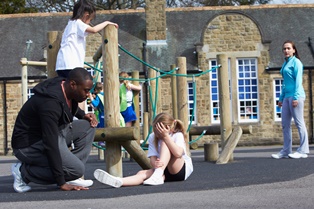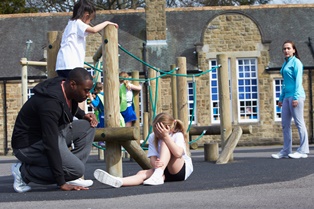Parents often do everything in their power to protect their children from harm. However, even the best-prepared parents can’t prevent every accident. While most childhood mishaps need little more than a band-aid and a hug, some accidents can be severe, requiring intensive medical treatment and long-term care.
Under Virginia state law, parents have the right to file a personal injury lawsuit on their child’s behalf. However, these claims are often subject to restrictions, which—while intended to protect the child’s rights—could make it difficult for parents to secure the rapid legal relief they need to restore their child’s independence. 
How Personal Injury Claims for Children Differ From Adult Claims
Virginia Has a Different Statute of Limitations for Children
Every state has a statute of limitations for personal injury claims. In Virginia, adults must typically file a lawsuit within two years of the event that caused their injury. However, children do not have the legal right or “capacity” to file a court claim.
Since minors cannot independently litigate a personal injury claim, they are afforded an automatic extension to the state’s ordinary two-year statute of limitations. If a child is injured before reaching the age of majority, they have two years from the date of their eighteenth birthday to file a lawsuit on their own.
Virginia Holds Children to a Different Standard Than Adults
Virginia is a “contributory negligence” state which prevents plaintiffs from receiving damages if they were partially to blame for the accident. Ordinarily, “negligence” is defined as the failure to behave with the same level of care that a reasonable person would have exercised under similar circumstances. However, Virginia and its courts recognize that children—by virtue of their youth and inexperience—may be unable to recognize hazards that would otherwise be self-evident to adults.
When assessing contributory negligence, Virginia considers the child plaintiff’s age:
- If the child is under the age of seven, they cannot be found negligent.
- If the child is between the ages of seven and fourteen, they are presumed incapable of negligence. However, if the defense provides evidence that the child possessed the knowledge, experience, or mental faculties to evaluate and avoid a dangerous condition, the child could be found negligent and therefore not entitled to compensation for their injuries.
- If the child is between the ages of fourteen and eighteen, the court may consider how other, reasonable persons of the same age may have acted in a similar situation.
The Court Must Approve Settlements for Child Plaintiffs
If a lawsuit is filed and the child’s family reaches a settlement with the defendant or their insurance company, they cannot receive compensation without first obtaining the court’s approval. In Virginia, personal injury settlements for children are usually overseen by circuit court judges.
When assessing a potential personal injury settlement, the court may hear testimony from the child, the child’s parents, and the defense to determine whether the proposed compensation is sufficient and fair.
The court may also question interested parties—such as the parents—about how the accident has impacted the child:
- Lifestyle and capabilities
- Current health
- Education
- Disabilities, if any, resulting from the accident
- Anticipated long-term care needs
However, even if the court believes that the settlement is fair, they will still ask that the child’s “next friend”—the person who filed the lawsuit, usually a parent or guardian—issue final approval.
Potential Damages in a Virginia Child Injury Claim
Your family could receive compensation for your child’s:
- Past, present, and anticipated medical expenses
- Physical rehabilitation
- Mental health counseling
- Prescription medication co-pays
- Loss of enjoyment
- Diminished earning potential
- Disability
Virginia does not currently limit the damages a child could receive after being involved in an accident. However, compensation may be awarded differently for children than adults. Depending on the circumstances and nature of your family’s claim, the court could:
- Award the damages to the child’s “next friend,” with the expectation that the money be used solely for the child’s betterment
- Place the funds in a trust, which could disburse a limited amount of money each month or each year
- Place the funds in a trust, which could be accessible only to the child after they have turned eighteen
Contact an Attorney Today
A serious accident could devastate a child’s life, preventing them from realizing their true potential. If your child has been injured in a Virginia accident, you and your family could be entitled to significant compensation through a personal injury lawsuit. Please send Kearney, Freeman, Fogarty & Joshi, PLLC a message online, or call us at 877-652-1553 to schedule your free, no-obligation consultation as soon as possible.
|
Related links: |


